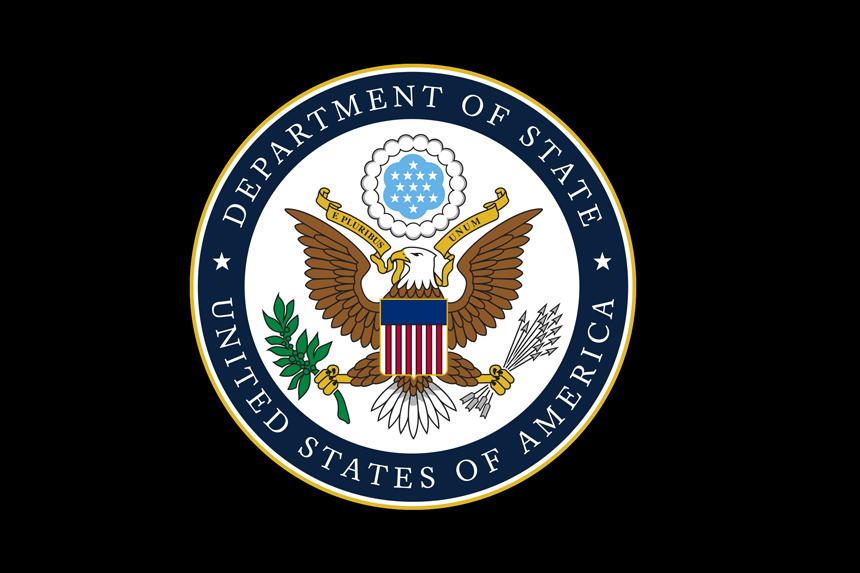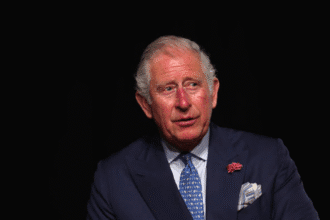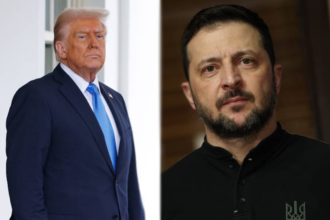When a damaged glass caused his jet, en way to the Munich Security Conference, to return barely one hour into its trip, US Secretary of State Marco Rubio found himself in an unforeseen predicament. The incident delayed his arrival at the event, already eclipsed by other political happenings. Rubio had to return to Andrews Air Force Base close to Washington DC on Thursday night, along with his senior officials and the traveling press, so compromising his much-awaited presence at the conference.
- What Did Pete Hegseth's Controversial Speech in Munich Reveal?
- Did Hegseth Backtrack on His Statements?
- Why was the arrival of Rubio delayed, and what was his stance on Ukraine?
- How Did JD Vance’s Remarks Contradict Hegseth's?
- What Was Trump’s Reaction to the Fallout from Hegseth’s Speech?
- Why Did Hegseth’s Speech Create a Stir Among European Allies?
- How Are US Foreign Policy Messages Being Communicated Under Trump?
- Why was Rubio's role in Munich Overlooked?
- This implies what US foreign policy under Trump needs?
What Did Pete Hegseth's Controversial Speech in Munich Reveal?
Pete Hegseth, US Defence Secretary, created ripples in Europe with a speech that shocked America’s allies. Hegseth suggested that Ukraine would need to make significant concessions if it were to sign any peace deal with Russia brokered by President Trump. He termed the idea of Ukraine regaining its occupied land and its ambition for Nato membership as “unrealistic.” Hegseth also contended that the troops responsible for peacekeeping should be European rather than American.
Critics grabbed at Hegseth’s comments right away, charging him of compromising Ukraine’s negotiating posture. Some Washington Republicans even referred to it as a “capitulation,” to Russian President Vladimir Putin. “It’s definitely an innovative approach to a negotiation to make very major concessions even before they have started,” former Swedish Prime Minister Carl Bildt co-chair of the European Council on Foreign Relations said.
Did Hegseth Backtrack on His Statements?
The day after his original comments, Hegseth attempted to take back some of his assertions, explaining that all options were still on the table for Trump to use as leverage in talks between President Putin and Ukrainian President Volodymyr Zelensky. He highlighted that he was only pointing out “realism” in the situation and disputed the suggestion that he had granted any unwarranted concessions to Moscow.
Hegseth added in an attempt to cool the debate, “What he decides to allow or not allow is at the purview of the leader of the free world, President Trump.”
Why was the arrival of Rubio delayed, and what was his stance on Ukraine?
Back in Munich, Rubio’s officials were briefing on his trip priorities even though his arrival was delayed. According to them, the US would work for a “just and lasting peace” in which European countries would take the lead in constructing a “durable security framework.” Rubio’s stance was clearly different from Hegseth’s. While Hegseth had hinted Ukraine could have to make compromises, Rubio’s team did not spell out any restrictions for Ukraine in peace negotiations, providing a more supportive tone.
How Did JD Vance’s Remarks Contradict Hegseth's?
The following day, Vice-President JD Vance appeared in Munich, giving a strong contrast to Hegseth’s views. He said the US may use “military tools of leverage” to force Russia to negotiate, which seemed to directly contradict Hegseth’s remarks on not sending US soldiers to Ukraine. This left many questioning the coherence of the US foreign policy on the conflict.
What Was Trump’s Reaction to the Fallout from Hegseth’s Speech?
In the Oval Office, President Trump was asked about the fallout from Hegseth’s speech, including critical commentary from a Republican senator, who described it as a “rookie mistake.” Though he answered gingerly, saying, “Generally speaking, yeah, generally speaking I was,” Trump sounded somewhat aware of what Hegseth was going to say before adding, “I’ll speak Pete, I’ll find out.”
This exchange offered some of the first major insights into Trump’s evolving stance on one of the most consequential issues facing his administration: Russia’s full-scale invasion of Ukraine. It also offered light on the inner workings of his administration’s US foreign policy.
Why Did Hegseth’s Speech Create a Stir Among European Allies?
The remarks of Hegseth and Trump on a friendly phone talk with Putin rocked European cities. His words, along with Trump’s support for a peace solution that may leave Ukraine’s voice marginalized, provoked reaction. Emphasizing the need of Ukraine being totally involved in peace negotiations, EU foreign policy chief Kaja Kallas said, “Any quick fix is a dirty deal.”
How Are US Foreign Policy Messages Being Communicated Under Trump?
The circumstances surrounding Hegseth’s speech brought attention to the mess US foreign policy under Trump is producing. Some have hypothesized that this anarchy might be part of a planned strategy—using unpredictability as a tool to help allies stay close while applying pressure on enemies, a method sometimes known as the “madman” theory of foreign relations.
But as the uncertainty about Trump’s suggestions for Gaza, which also saw contradicting remarks from his staff, shows, such unpredictability also carries great hazards.
Why was Rubio's role in Munich Overlooked?
By the time Rubio’s smaller, replacement plane finally landed in Munich, his colleagues’ remarks had already overshadowed his own. Arriving with the windscreen intact but without the press pool on board, his plane left Rubio’s presence mostly unappreciated among the tumult. Most of the headlines already pointed elsewhere, especially on Hegseth’s divisive speech and the contradicting remarks made by different officials.
Rubio’s team was advised despite the drama that his posture stayed devoted to peace and cooperation with European leaders on the Ukraine issue. Ultimately, though, his delayed arrival and the uncertainty about US foreign policy left his own message mainly ignored.
This implies what US foreign policy under Trump needs?
The confusion surrounding Hegseth’s speech, the inconsistent assertions from senior officials, and Trump’s ever-evolving posture on Ukraine have raised questions about the consistency of US foreign policy under his leadership. Some view it as a deliberate tactic of unpredictability, while others worry that in an already unstable environment the inconsistency may cause diplomatic mishaps.
Regarding the continuous conflict in Ukraine, US participation’s future is still unknown since Trump’s government is still forming its posture and message. It seems that the one certainty for now is that, under Trump, US foreign policy is as unpredictable as ever.








